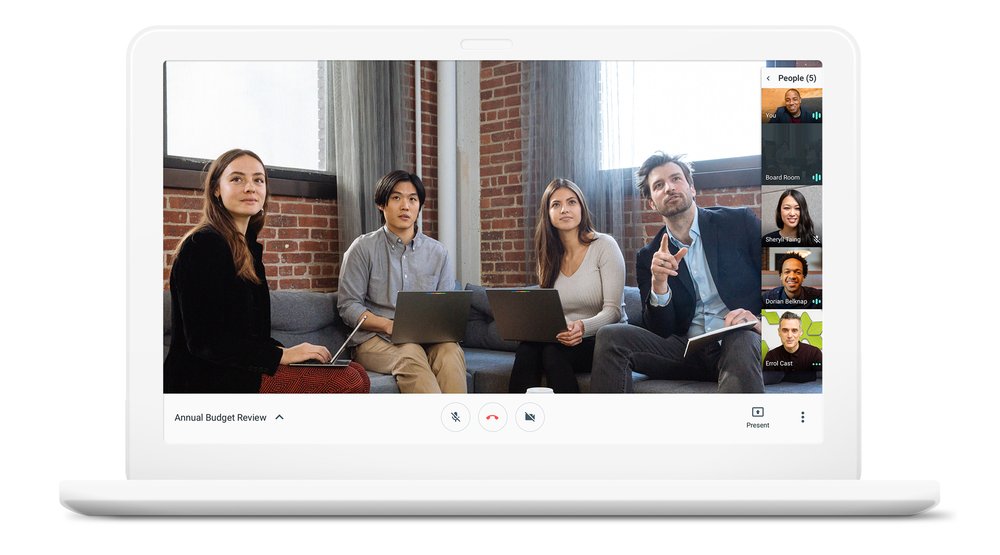Affiliate links on Android Authority may earn us a commission. Learn more.
Traditional Hangouts video calls for G Suite customers will soon be no more

- Starting in May, meetings created in Google Calendar for G Suite will default to Hangouts Meet instead of traditional Hangouts video calls.
- G Suite administrators can delay the eventual move by at least four weeks.
- Internet Explorer and Safari users are out of luck in regards to Meet support.
Up until now, video conferencing app Hangouts Meet and traditional Hangouts video calls peacefully co-existed alongside each other. That will change soon, as Google announced that Meet will be the go-to app when you schedule a meeting in Google Calendar.
In an email to G Suite administrators, Google attributed the decision to Meet’s relatively better performance, “positive customer feedback,” and “cleaner, more focused user experience.” It also helps that Meet continually received updates since its launch in March 2017.
Over time, Meet was updated to include features like being able to call out to U.S. and Canadian phone numbers, custom hardware for G Suite Enterprise customers, support for up to 50 participants, and the ability to record meetings to Google Drive.
The transition to Hangouts Meet will start after May 21, with G Suite administrators not needing to lift a finger. If administrators wish to delay the inevitable for a bit longer, they can extend their use of classic Hangouts for video calls by opting out under Apps -> G Suite -> Google Hangouts -> Global Settings.

Google also noted that previously-created classic Hangouts video links will still work until at least August 13.
Keep in mind that Meet does not support Internet Explorer or Safari. Instead, Google’s video conferencing solution supports its Chrome browser, with support for Firefox arriving sometime in May.